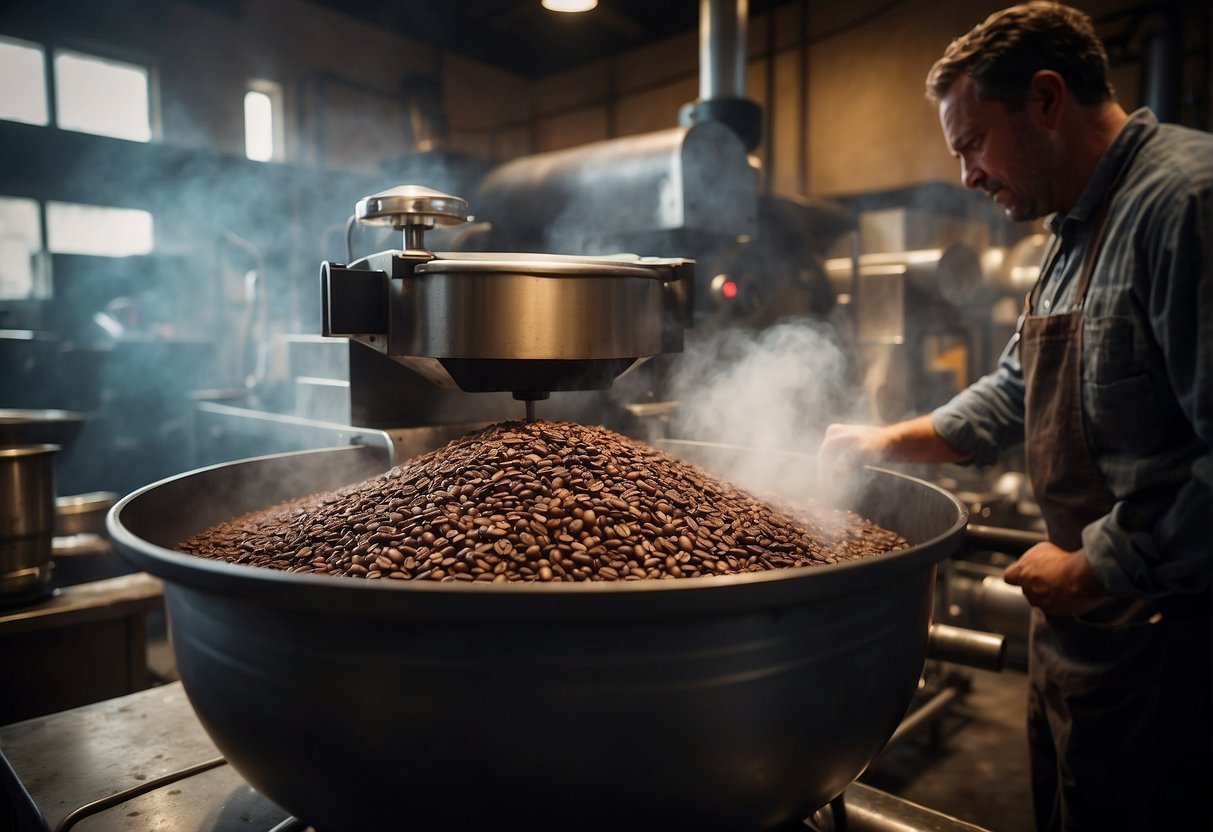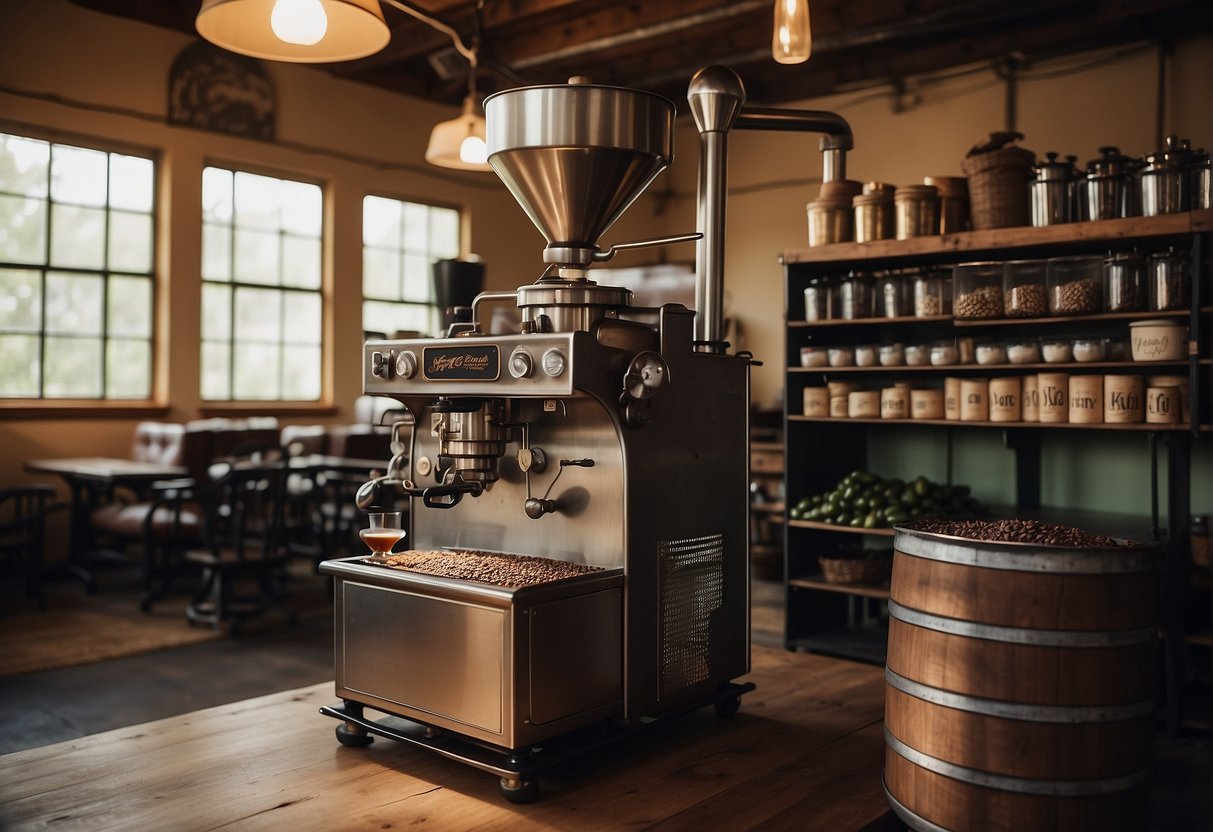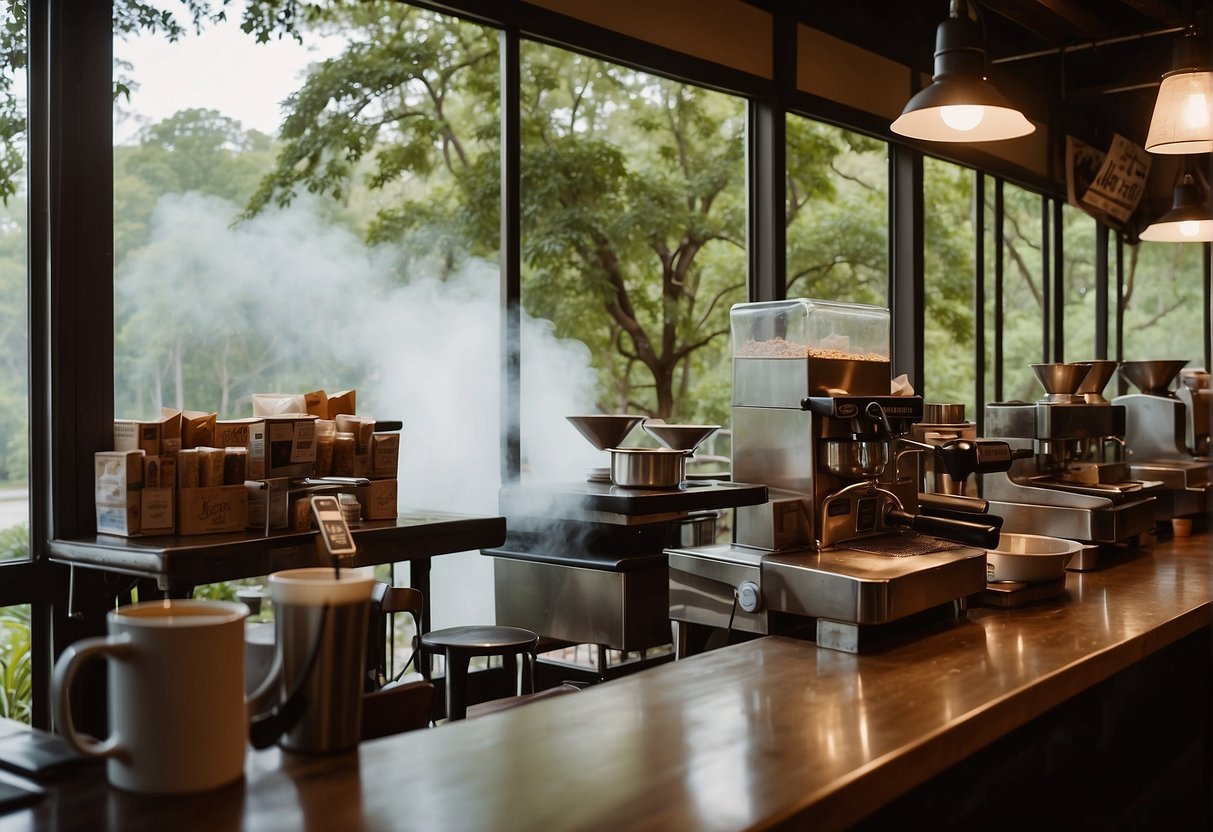Louisiana, with its rich cultural tapestry and vibrant culinary scene, is also home to a thriving coffee culture. Coffee roasters in the state take pride in their craft, dedicating themselves to producing specialty coffee that captures the unique spirit of Louisiana. With a variety that spans traditional flavors to innovative blends, these roasters cater to a wide range of palates and preferences, ensuring that there is something for every coffee enthusiast.

The coffee roasting scene in Louisiana is as diverse as its ecosystem, ranging from small-batch artisans to larger operations that have garnered national acclaim. They are known for their meticulous bean selection and roasting processes that emphasize consistency, flavor, and freshness. This attention to detail is evident in every cup, whether it’s savored in a cozy café or brewed at home.
Many of these roasters also place a significant emphasis on sustainability and ethical sourcing, ensuring that their coffee not only tastes good but also supports fair practices. Consumers can explore an array of single-origin coffees and blends that are thoughtfully crafted to reflect the uniqueness of Louisiana. With an unwavering commitment to quality and community, Louisiana’s coffee roasters have created a special niche in the coffee world where tradition meets innovation.
History of Coffee Roasting in Louisiana

The tradition of coffee roasting in Louisiana, particularly in New Orleans, is a rich tapestry that interweaves global influences and local innovations. From the infusion of chicory to the birth of iconic local brands, Louisiana’s coffee culture is a unique blend of history and flavor.
Influence of French and Spanish Cultures
Louisiana’s coffee roasting heritage owes much to its French and Spanish roots. The French introduced coffee in the region during colonial times, and the Spanish trade routes later facilitated the influx of coffee beans. Cafés began to appear in the French Quarter, becoming social and commercial hubs that reflected the European coffee house culture.
Rise of Chicory Coffee Tradition
The practice of adding chicory to coffee, now synonymous with Louisiana’s coffee culture, began during the Napoleonic era. It was during this time of economic hardship that chicory—a root that can be roasted and ground—was added to extend coffee supplies. This tradition persisted and evolved into a distinct feature of the New Orleans coffee scene.
Abita Roasting Co and the Local Pioneers
Local pioneers have shaped Louisiana’s coffee landscape, with companies like Abita Roasting Co serving as prime examples of the state’s roasting prowess. Founded on the banks of the Abita River, this brand embodies the passion for balancing modern methods with respect for historical practices, roasting beans that capture the essence of Louisiana’s coffee roasting legacy.
Prominent Coffee Roasters in New Orleans
https://www.youtube.com/watch?v=Pm2oZ5OGoUA&embed=true
New Orleans is well-noted for its rich coffee culture, featuring roasters who are passionate about their craft. These local coffee roasters stand out through their unique missions, commitment to quality, and innovative approaches.
French Truck Coffee’s Mission
French Truck Coffee prides itself on delivering the freshest coffee to its customers. They operate on a simple philosophy: the best coffee is fresh coffee, and they achieve this by roasting and serving their beans as close to the peak of flavor as possible.
Orleans Coffee’s Sourcing and Quality
Orleans Coffee distinguishes itself through a rigorous selection of beans and attention to detail in the roasting process. They forge direct relationships with coffee farmers to ensure they source only the highest quality beans, reflecting their dedication to both flavor and sustainability.
Cherry Coffee Roaster’s Specialty Approach
At Cherry Coffee Roasters, there’s a specialized approach to coffee. They carefully select their beans and roast in small batches, which allows for highlighting the bean’s individual characteristics and achieving a consistent profile that’s both unique and exemplary within the diverse New Orleans coffee scene.
Regional Coffee Scene Beyond New Orleans

Louisiana’s coffee culture extends well beyond the well-known New Orleans scene, with cities like Baton Rouge and Lafayette fostering their own unique coffee communities. These areas offer a range of local roasters and cafes that are developing distinct coffee experiences.
Baton Rouge’s Emerging Coffee Culture
Baton Rouge is making a name for itself with a growing coffee culture that is both unique and innovative. While it may not have the historical coffee legacy of New Orleans, its local roasters and cafes are determined to put the city on the map. One standout is Rhino Coffee, an establishment that not only aims to serve excellent brews but also takes pride in being a premier roaster within the region.
Lafayette’s Coffee Community
The coffee community in Lafayette reflects the city’s rich cultural tapestry, incorporating both traditional methods and modern approaches. Coffee enthusiasts here enjoy a range of specialty offerings and locally roasted beans. The scene in Lafayette is vibrant and community-focused, with coffee acting as both a craft and a connector for its residents.
The Art of Coffee Roasting
In Louisiana, coffee roasting is an intricate process deriving its heritage from the state’s rich coffee history. Expert roasters meticulously calibrate heat and timing to unlock the coffee bean’s full array of flavors.
Understanding Roast Profiles
Each coffee bean comes with its unique characteristics, which are enhanced or subdued depending on the roast profile. The roaster must understand how variables like temperature and roast duration can influence the acidity, body, and overall flavor of the coffee. Light roasts bring out bright and fruity notes, while medium roasts may reveal balanced, chocolaty flavors. It’s a scientific process, where precision is key.
Small-Batch Roasting for Freshness
Small-batch roasting is a revered method among Louisiana’s artisanal coffee roasters. It means coffee is roasted in limited quantities, ensuring a high level of control and attention to detail. The result is often a fresher product, as small-batch roasters can frequently roast on demand, providing consumers with coffee at peak freshness.
Balanced Flavors and Dark Roasts
Coffee aficionados may seek a cup with balanced flavors—not overly harsh or bitter, with just the right acidity. Dark roasts, especially popular in Louisiana, are robust and offer a bolder taste. They typically exhibit deep, rich chocolate or caramel undertones, with a heavier body that leaves a lasting impression on the palate. Roasters achieve these flavors through precise timing and temperature control during the roasting process.
Sourcing and Sustainability
Louisiana’s coffee roasters take pride in conscientious sourcing and sustainability practices. They emphasize the importance of supporting coffee growers and environmental stewardship.
Direct Relationships with Coffee Farms
La Cosecha Coffee Roasters have set a benchmark for building direct relationships with coffee farms, ensuring that coffee growers receive an honest wage for their labor. These strong connections with small farmers enable a steady supply of high-quality coffee beans while also supporting the socio-economic welfare of the farmers’ communities.
Fair Trade and Environmental Considerations
Fair Trade is integral to many local roasters like River Road Coffees, guaranteeing better prices and decent working conditions for farmers and producers. River Road Coffees is among the roasters leading by example, highlighted by their commitment to providing customers with 100% USDA Organic Certified coffee beans, showcasing their dedication to environmental considerations and sustainable farming practices.
Navigating Coffee Purchases Online and Offline
Navigating the landscape of coffee purchasing in Louisiana, consumers have the option to delight in the rich culture of local coffee shops and espresso bars, or explore the convenience of buying coffee online. Each avenue offers its own benefits and requires distinct considerations.
Local Shops and Espresso Bars
Local coffee roasters and espresso bars present an experience steeped in tradition and personal touch. Consumers should look for shops that roast their own beans, such as Louisiana Roasting Company, which sources coffee from around the globe and roasts in Shreveport, Louisiana. Visiting these establishments allows customers to engage directly with baristas, who can provide valuable insight into the flavors and origins of different brews. Customers typically have the opportunity to sample brews before making a purchase. It’s advisable to call ahead or check online to confirm the business hours and available selections.
When preparing for a visit, customers should note the address of the shop and consider reaching out via email or call with any specific questions or to verify inventory.
Buying Coffee Online: Tips and Tricks
For those opting to purchase coffee online, research is key. Websites like CoffeeBeaned.com’s Louisiana Coffee Roasters can be a starting point to find local roasters who sell their beans online. When buying coffee online, customers should:
- Review roaster profiles to understand their sourcing and roasting philosophy.
- Check for customer reviews to gauge satisfaction with the product and service.
- Take note of shipping policies and costs, as well as return policies if the coffee doesn’t meet expectations.
Communication is also straightforward when buying online; potential buyers can inquire about products through email to get more information before committing to a purchase. Freshness is crucial when it comes to coffee, so one should confirm that beans are roasted to order or within a window that ensures they arrive at the peak of flavor.
